Tehran University To ‘Strictly’ Enforce Mandatory Hijab
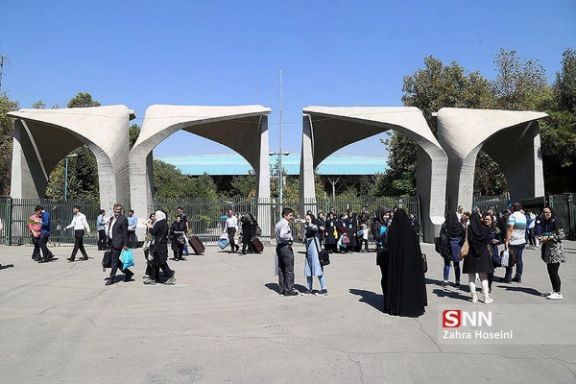
The dean of Tehran University has threatened that based on a new decision students who do not comply with compulsory hijab will "be subject to disciplinary action".

The dean of Tehran University has threatened that based on a new decision students who do not comply with compulsory hijab will "be subject to disciplinary action".
Mohammad Moghimi said Thursday that according to the new regulation approved by the university council, women without proper hijab will be identified upon entering through their student cards.
According to him, after identifying the students, messages will be sent to them, and they will be asked to observe the mandatory hijab.
“In the next step, the university will contact the student's family and if the student still does not observe the mandatory hijab, a disciplinary case will be filed against her,” added Moghimi.
The dean of Tehran University warned the students that “as of now, the mandatory hijab regulations will be strictly enforced.”
During the nationwide protests in Iran following the death in custody of Mahsa Amini, universities have been the scene of anti-regime protests, however the authorities of the Islamic Republic have imposed extensive restrictions on the protesting students.
For instance, a few days ago, Shargh daily reported that security organs have banned around 50 students from entering Urmia University in the northwest.
After months of protests, many women have removed their hijab in big cities and the government is hesitating on a full clampdown, afraid that it would inflame more unrest.
Earlier, sources reported increasing pressure through "exclusion from dormitories and suspending students."
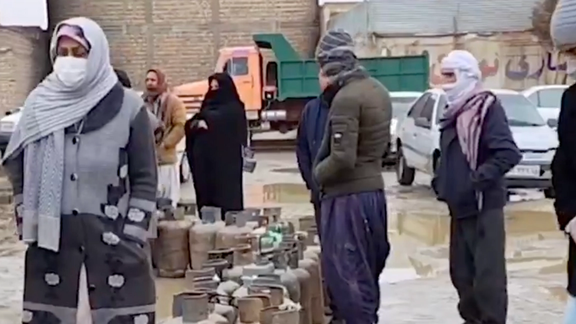
Amid catastrophic energy shortages across Iran, kilometer-long queues of cars have been formed at gas stations in several cities while more oil industry workers stage strikes.
According to videos on social media, truckers in some cities such as Tabriz in northwestern Iran and Zahedan in southeastern are stranded around gas stations apparently due to a lack of diesel fuel and compressed natural gas (CNG).
Gas supplies to homes, which the government tried to protect during past cold season crunches, have also been interrupted in some regions. While offices and schools in Iran have been closed for days due to a serious natural gas shortage, long lines have also been formed in the cities where people use gas in capsules for their daily needs.
Amid natural gas shortage due to the government inability to invest in production, a new wave of strikes by oil and gas industry workers has kicked off in the country.
On Thursday, workers of the Qeshm oil terminal joined the strikes which have already started with gatherings in Ahvaz, Asaluyeh, Dehloran, Shiraz, Ilam, Bandar Lengeh and Aghajari in the south and southwest of Iran.
The Qeshm oil terminal is a major oil export terminal being developed in the Qeshm Island that lies along the strategically important trade route of the Strait of Hormuz, off the southern coast of Iran.
Fadahossein Maleki, the representative of Zahedan in the parliament, said Wednesday that "There is no gas supply in many areas of Sistan-Baluchistan province.” Even bottled gas and kerosene that should be given to the people is scarce, he added.
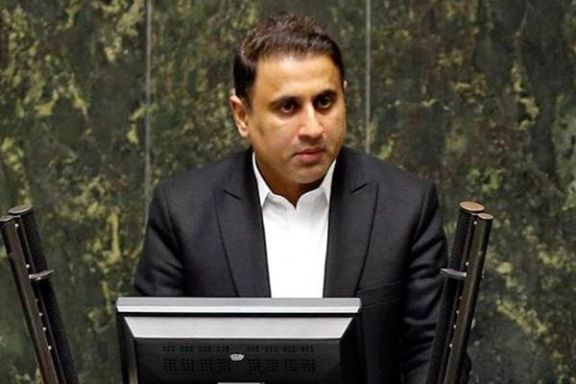
Moineddin Saeedi, representing Chabahar, in the underprivileged province said at the parliament Wednesday that "In August, the oil minister predicted a harsh winter in Europe... Now we have seen that this did not happen there and unfortunately it happened in our own country." He added that gas has become a "luxury commodity" and access to it has become a dream for many people.
Similar problems have also been reported in other parts of the country such as the central province of Esfahan (Isfahan), northern provinces of Mazandaran and Golestan, and northeastern Khorasan provinces.
While Islamic Republic officials predicted a bad winter in Europe, offices, organizations, schools, and universities were shut down in many parts of Iran.
With natural gas shortage, Iran resorted to burning mazut at power stations, which is an extremely polluting fuel compared with cleaner diesel.
Iran has failed to invest in its gas production sector, although it has the world’s second largest reserves, while with extremely cheap prices for consumers, usage has been increasing ever faster. The distribution network also needs upgrades as more than 25 percent of the gas is lost during transfer.
Iran's gas production and extraction capacity is limited to around 800 million cubic meters per day. According to the ministry of energy, about 650 million cubic meters are consumed by domestic, commercial, and administrative users, however, the data has changed a lot in different years and contradict international estimates. The international energy organizations say less than 40% of Iran's natural gas is consumed at homes, but the Islamic Republic is trying to blame the shortage of gas on home users.
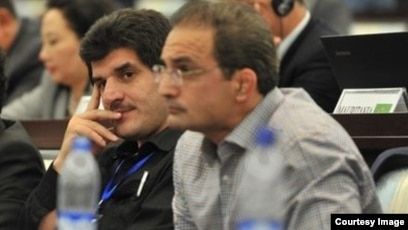
Two Iranian veteran athletes, brothers Amir-Reza and Rasoul Khadem, continue harshly criticizing the policies and performance of the regime in Iran.
Rasoul Khadem, former champion, and coach of the national wrestling team criticized the “false promises” of President Ebrahim Raisi and Vice President Mohammad Mokhber about building four million houses in four years.
In a post on his Instagram Wednesday, Rasoul Khadem also lashed out at Raisi because of the declining value of Iran’s currency and soaring prices for cars and housing.
During his campaign Raisi had promised to build one million affordable housing units in each year of his term in office.
Earlier, Amir-Reza Khadem, the former Head of Iran’s Wrestling Federation, also lashed out at the recent statements by the Interior Minister following months of protests by ordinary people, saying "You have confused the people with the terrorists of al-Qaeda, ISIS...!"
Interior Minister Ahmad Vahidi, on Monday once again called the support of famous figures and celebrities for the popular protests a "criminal act".
He also warned that if celebrities do not stop, the judiciary must intervene.
In response, Amir-Reza Khadem wrote on his Instagram that "Your first duty is to provide peace, not to play the role of a reeve or an ambassador of torment!"
In another part of his comment, the Iranian wrestling champion said those athletes and artists who expressed support for people are neither in need of fame nor money; and if they were, they would have emigrated.
In the past months, the Khadem brothers have levelled sharp criticism against the regime and its officials, especially on social networks.
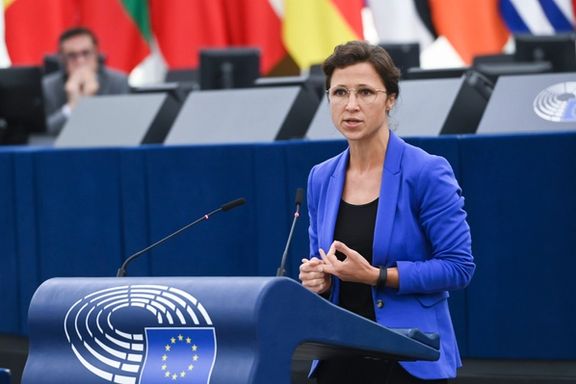
The European Parliament overwhelmingly passed a resolution Thursday calling on the EU and member states to designate Iran’s Revolutionary Guard as a terrorist group.
The resolution demands Iranian authorities end the crackdown on popular protests that started last September after a 22-year-old woman was killed in hijab police custody.
It also demands that Europe should sanction the Islamic Republic’s Supreme Leader Ali Khamenei and its president Ebrahim Raisi.
The issue of adding the Revolutionary Guard (IRGC) to the list of Europe’s terrorist entities became a rallying point for the Iranian diaspora, which launched online campaigns and held a large protest in Strasbourg on January 16 to lobby the European Parliament for passing the resolution.
MEPs demand that all those responsible for human rights violation should face EU sanctions and the IRGC should be on the EU terrorist list.
The resolution is not binding on the European Council that defines the general political direction and priorities of the European Union andcan make final decisions on sanctions.
The European Parliament’s resolution urgesthe EU to expand its sanctions list to cover all individuals and entities responsible for human rights violations and their family members, including Supreme Leader Ali Khamenei, President Ebrahim Raisi, Prosecutor General Mohammad Jafar Montazeri and all foundations (‘bonyads’) linked to the Islamic Revolutionary Guard Corps (IRCG).
It also calls on the Council and the member states to add the IRGC and its subordinate forces, including the paramilitary Basij militia and the Quds Force, to the EU terrorist list. Any country in which the IRGC deploys military, economic, or informational operations should sever and outlaw ties with this entity.
The IRGC played a major role in suppressing antigovernment protests in the past four months, overseeing several security agencies that have killed over 500 civilians, jailed over 20,000 people and inflicted lasting injuries on hundreds of people.
Reports, however, say that the European Union foreign policy chief Josep Borrell is not in favor of sanctioning the IRGC, concerned that the Islamic Republic will not be forthcoming in nuclear talks with the West.
Negotiations that began in April 2021 to revive the 2015 Iran nuclear deal, known as the JCPOA, came to a deadlock in September. In the meantime, Tehran has supplied kamikaze drones to Russia, which are used in attacks on Ukraine’s civilian infrastructure.
The Islamic Republic and its officials, extremely concerned about IRGC’s designation, have been warning Europe in recent days against “the consequences” of such a decision.
The resolution also calls on Tehran in “strongest terms” to stop the execution of detained protesters. So far, the government has hanged four young men after sham trials. It also urges “the authorities of the Islamic Republic to ensure the immediate and unconditional release of all protesters sentenced to death and condemn the fact that criminal proceedings and the death penalty have been weaponized by the regime to stamp out dissent and to punish people for exercising their basic rights.”
The European Parliament also condemned Iran’s military assistance to Russia and its “transnational repression carried out by the authorities of the Islamic Republic, which includes espionage and assassinations, against the Iranian diaspora living in the EU. They call on the EU and the member states to protect those affected more robustly against such repression.”
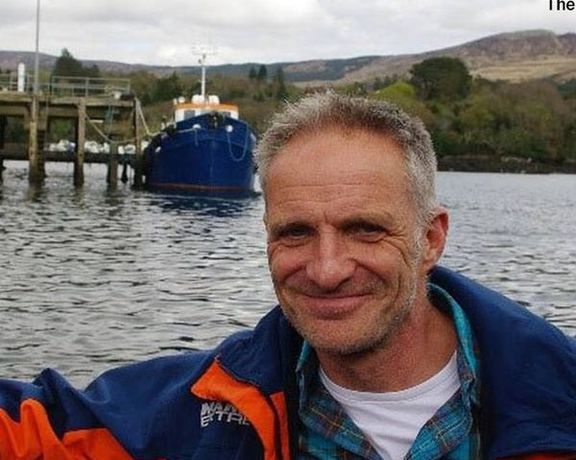
A French diplomatic source says the health condition of the Irish-French prisoner Bernard Phelan, who is behind bars in Iran, is deteriorating.
Bernard Phelan was arrested on October 3 during anti-regime protests that have swept the country following the death of Mahsa Amini in police custody on September 16.
His family says he has been on hunger strike since the beginning of the New Year and has even stopped taking medication for a heart condition. He is also refusing water.
Bernard Phelan, 64, who is a travel consultant has been accused by the Islamic Republic of "propaganda against the establishment" and "photographing police and security officers". He is imprisoned in Vakil Abad prison in Mashhad northeast of Iran.
"He is showing serious signs of physical and psychological exhaustion" added the official, saying despite repeated requests of the governments of France and the Republic of Ireland to release him for medical reasons, the Islamic Republic has refused to do so.
Phelan’s sister, Caroline Masse-Phelan, told AFP Wednesday that her brother was an innocent man detained for reasons "beyond our comprehension."
She said his health condition meant he had to be released urgently.
"It's a matter of days. He's an innocent man caught in the middle of I don't know what. He loves Iran, he is 64, sick, and wants to go home," she said.
"I think he is part of a group of Europeans imprisoned for political reasons ... of which I know nothing," his sister added. "We have nothing to do with this story."
Several foreigners visiting Iran have disappeared during the nationwide protests, confirming earlier reports that the Islamic Republic is taking foreign citizens hostage.
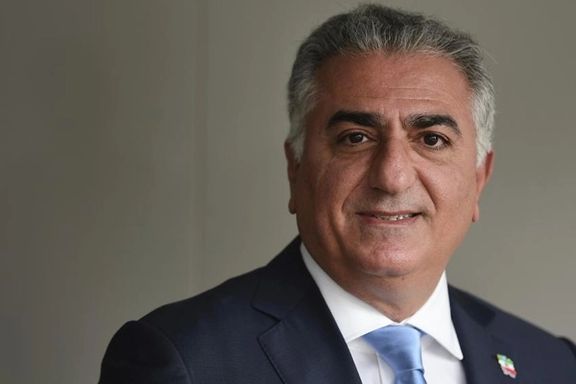
Many Iranians, including artists and athletes have signed a petition endorsing exiled Prince Reza Pahlavi as their representative to lead a transition from clerical to secular rule.
An online campaign to give Prince Reza Pahlavi power of attorney has been launched by Iranian actor Ehsan Karami and it has been signed by more than 160,000 people until the time of this publication.
Iranian football legend Ali Karimi, a key supporter of the popular uprising, has also signed the petition appointing Pahlavi as his representative.
He wrote in a tweet that "I give power of attorney to Prince Reza Pahlavi, for the period of transition [to oust] the child-killing regime and [holding] a free referendum for a free and prosperous Iranian."
Singers Hamed Nikpey and Hamid Talebzadeh, actors Borzou Arjmand and Hamid Farrokhnejad, and actresses Rounak Younesi and Parastou Salehi are among the other public figures supporting the campaign.
Prince Reza Pahlavi, in an interview with Farsi-speaking London-based "Manoto" TV and in response to a question why he does not clearly assume the role of leading the movement said, "any kind of work we do must have a legitimate basis or some kind of power of attorney from inside Iran."
There has been no reaction from other key opposition figures including British-Iranian actress and human rights activist Nazanin Boniadi, journalist and activist Masih Alinejad, actress Golshifteh Farahani and activist Hamed Esmaeilion.
In a joint message on Monday, the first four along with prince Reza Pahlavi urged the international community to list Iran's Revolutionary Guard as a terror group.